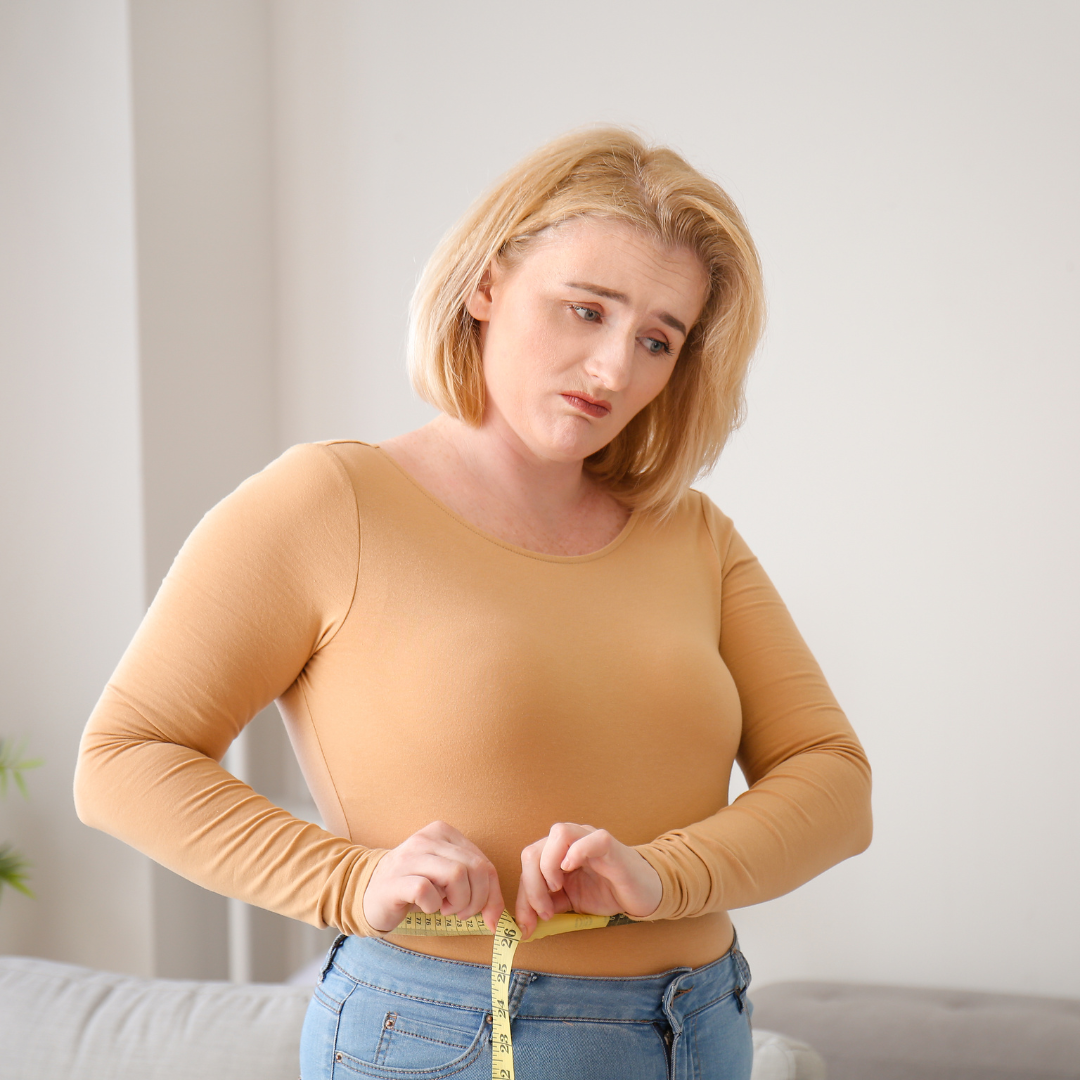
As we age, our bodies undergo changes that can sometimes result in weight gain. For women, this is often due to hormonal changes that occur during perimenopause. Diet and exercise can help to offset some of the weight gain associated with perimenopause.
What is Menopausal Weight Gain?
Weight gain during perimenopause is a natural occurrence due to the hormonal changes that women experience during this time. While sometimes weight gain is inevitable, there are things that you can do to help offset the impact of menopausal obesity.
Diet During Perimenopause
Making smart food choices is one of the best ways to manage weight during perimenopause. Eating more vegetables, fresh fruits, lean protein, and whole grains can help you maintain a healthy weight. Avoiding sugary drinks, saturated, processed foods, and unhealthy fats likewise keeps menopausal weight gain at bay. This is all general advice, but for more specific diet plans, it’s best to see a menopause nutritionist london or one closer to you. They can take a proper look at your health and accordingly recommend what foods to eat regularly, what to eat moderately, and what to avoid.
Exercise During Perimenopause
Exercise is another excellent way to manage menopausal weight gain. Regular exercise can help you burn calories, build muscle, and improve your overall health. If you’re not used to exercising, start slow and gradually increase the intensity and duration of your workouts. Try to find an activity that you enjoy so that you’re more likely to stick with it.
Weight gain during perimenopause is a natural occurrence due to the hormonal changes that women experience during this time. As you grow older, it’s important to get health checkups done, as you may not know whether a symptom is because of menopause or because of a different health condition. Many women face issues like soreness in their breasts, or a change in breast size or shape, which may be a natural occurrence during menopause. However, it’s generally advisable to look up “mammogram near me in Wayne” (or something similar where you are located) to get a test done every year or so, just to ensure that everything’s okay.
Foods to Avoid
Certain foods can contribute to weight gain and should ideally be avoided during perimenopause. Processed foods are often high in calories and low in nutrients, which can lead to weight gain. Eats that are high in sugar can also cause weight gain, as well as health problems like type 2 diabetes. Additionally, saturated and harmful fats have to be minimized because they might result in weight gain and other health issues.
Foods to Eat
Some of the best foods to eat during perimenopause are fresh fruits and vegetables, lean protein, and whole grains. These foods contain nutrients that help you maintain a healthy weight. Fruits and vegetables are great sources of fiber, vitamins, and minerals. Lean protein sources like chicken, fish, and beans are also packed with nutrients and can help you feel full longer. Whole grains contain complex carbohydrates that give you lasting energy throughout the day.
Eating a healthy diet during perimenopause is one of the best ways to manage obesity. Avoiding excessive amounts of saturated fats, processed foods, and sugary drinks can help you keep your weight under control. Eating plenty of fresh fruits and vegetables, lean protein, and whole grains can also help you maintain a healthy weight.
Supplements for Menopausal Weight Gain
Several supplements can help you manage menopausal weight gain. Black cohosh is a supplement traditionally used to help manage hot flashes and other symptoms of menopause. It can also help to regulate your hormones and reduce weight gain. Red clover is another supplement that can help minimize menopausal symptoms like hot flashes and night sweats. It can help to protect against bone loss and reduce the risk of heart disease. Soy isoflavones are phytoestrogen types that can help reduce menopausal symptoms like hot flashes and night sweats. They can also help to improve bone health and reduce the risk of heart disease.
How to Lose Weight Safely During Perimenopause
If you’re interested in losing weight during perimenopause, you can do a few things to ensure you do it safely. First, talk to your doctor before starting any weight loss plan. They can assist you in determining a healthy weight for your body and give you tips on how to lose weight safely. Second, focus on eating a healthy diet and doing regular exercise. Avoid fad diets and excessive amounts of calorie restriction, as these can be dangerous for your health. Third, stay hydrated by drinking plenty of water throughout the day. Finally, be patient with yourself, and don’t expect to lose weight overnight.
Causes of Menopausal Weight Gain
There are a variety of reasons why women gain weight during perimenopause. One of the most common causes is hormonal changes. As they approach menopause, their bodies start to produce less estrogen. It can lead to weight gain and other symptoms like hot flashes and night sweats. Another cause of menopausal weight gain is a decrease in muscle mass. As women age, they lose muscle mass, leading to weight gain. Finally, lifestyle changes can also contribute to menopausal obesity. Women who are less active and eat a diet high in calories and fat are more likely to gain weight during perimenopause.



